Spiritual Discernment, Common Sense, and Critical Thinking: An Anathema of the 21st Century
You can’t use spiritual discernment to figure out math problems. You must learn the proper principles of math and you can figure out any math equation. Similarly, you can’t always use critical thinking and use common sense when dealing with God, because God’s thoughts and ways are not like ours (Isaiah 55:8-9). For example, remember when Peter was commanded to walk on water (Matthew 14:25-30)? Well he was successfully standing and walking on water until he started looking at the natural circumstances. His defying of natural laws is a testament to learning how to strike the balance between spiritual insight and natural knowledge: two paradigms that are beneficial to a successful human life, but only if executed properly.
Spiritual Discernment
Mark 7:16; Matthew 11:15; Matthew 13:9; Luke 8:8; Revelation 2:7, 11, 17, 29; Revelation 3:6, 13, 22 He that has ears to hear, let him hear.
(Author’s thought: Jesus is referring to a spiritual keenness that tunes to a frequency that everyone else might not be able to sense [similar to a dog’s sense of hearing, but spiritually-speaking])
2 Kings 6:8-18 is another fine example of spiritual discernment.
(Author’s thought: In this account, God is asked to open the young man’s eyes. His physical eyes were opened and functioning just fine, but the spiritual element needed to be revealed to him. When God intervened, then he saw that the battle was God’s)
1 Samuel 3:1-21 gives us the account of the spiritual discernment of a mentor (Eli) and a child (later to become the Prophet Samuel).
(Author’s thought: Again this is an example of keenness in the Spirit. Eli discerned that God was speaking to the child, and taught the young guy how to listen to God speak and how to commune with Him. This is actually a great lesson to be learned by all of us, that children can know God and fellowship with Him. God created children and He knows how to reach them on their level. We should stop dumbbing down God to the children and walk in these Eli/Samuel-type examples, so that we can teach and raise our children in the nurture and the admonition of the Lord (Ephesians 6:4)
Matthew 16:16-17: Simon Peter answered and said, “You are the Christ, the Son of the living God.” Jesus answered and said to him, “Blessed are you, Simon Bar-Jonah, for flesh and blood has not revealed this to you, but My Father who is in heaven.
(Author’s thought: This is a fine example of having knowledge that has never been taught on the earth. Jesus confirmed that no human taught Peter this truth, but the information came straight from Heaven. This is important because it let’s us know that humans don’t know everything. There is information that exists that we don’t know (Deuteronomy 29:29), but God will reveal it.)
1 Corinthians 12:10 To another the working of miracles; to another prophecy; to another discerning of spirits; to another divers kinds of tongues; to another the interpretation of tongues:
(Author's thought: Discerning of spirits is taught in the New Testament as a gift of the Holy Spirit.)
Practical application in developing your spiritual discernment:
- Be a student of the principles of the Word of God. Find out what God says about matters, see what God thinks about things and train yourself to think likewise. Don’t just try to memorize Scriptures. If you want to memorize Scriptures, that’s fine, but seek to extract the true spiritual essence (revelation of faith) from the Scriptures. What are the Scriptures really saying? How do I apply what the Scriptures are saying in the 21st century?
- Read my article called Listen to and Follow Your Heart and Being Filled With the Holy Spirit you will increase your spiritual keenness and start to gain more spiritual insights.
Common Sense
Common sense is actually quite simple to understand. If you have been exposed to life at all, then common sense is common natural understanding of things. For example, if you know that a fire is hot, (because you have felt the heat that it radiates or you’ve seen the effects of it burning something) then surely you would know not to put your hand in a burning fire. This is common sense that even a child knows; it isn’t rocket science. But we have some of our countrymen who don’t practice good common sense, maybe not with fires, per se, but with other things, such as relationships, business deals, desicion making etc. Of the three elements that we are going to discuss in this article, this is the easiest matter to address. Life is actually very simple; it just becomes difficult when we try to shove the proverbial square peg in the round whole. Observation, asking questions and calculating your moves are the key here. Let’s use more common sense, folks. This doesn’t mean that you won’t make mistakes or have trouble; it simply means that you shouldn’t repeat your own mistakes or the mistakes of others. Again, let me further clarify, I am not talking about repeating a habit or addiction either, that’s a flesh issue. Another topic for another time.
Practical application in using common sense:
- Before you act on anything, ask yourself if you truly understand what you’re doing, hearing, or saying, and then ask yourself if it makes sense. If it doesn’t make sense then don’t follow through with the action until it does make sense. If it never makes sense, don't follow through with the action. For example, why would you pay just the minimum payment on your credit card and let the finance company make all of that profit? Pay more on your princple every month if you can, and eliminate that bill quicker.
- Read my article called the Adverbial Perspective. It will give you perspective on questioning your environment so that you don’t act on a whim, emotion, or out of desperation.
- Learn from the experience and mistakes of yourself and/or others.
- Don’t reinvent things, use what exists to innovate and expand an insight, concept or idea.
Critical Thinking/Deductive Reasoning

The function of education, therefore, is to teach one to think intensively and to think critically . . . The complete education gives one not only power of concentration but worthy objectives upon which to concentrate.
William Graham Sumner offers a useful summary of critical thinking:
The critical habit of thought, if usual in society, will pervade all its mores, because it is a way of taking up the problems of life. Men educated in it cannot be stampeded by stump orators ... They are slow to believe. They can hold things as possible or probable in all degrees, without certainty and without pain. They can wait for evidence and weigh evidence, uninfluenced by the emphasis or confidence with which assertions are made on one side or the other.
If A=B and B=C. Does A=C? Well, answer it!!!!!!
Critical thinking seems to be a lost art today. We don’t live in a thinking society, we live in a television society that trains people to respond and react rather than to receive information, anaylze it and act upon it in a positive manner. Critical thinking consists of: mental processes of discernment, analyzing and evaluating. It includes all possible processes of reflecting upon a tangible or intangible item in order to form a solid judgment that unites scientific evidence with common sense. Whereas, deductive reasoning applies general principles to reach specific conclusions. For example:
All apples are fruit.
All fruit grows on trees.
Therefore all apples grow on trees.
Wow, that’s powerful! Nothing can stop you, and you have the capacity to figure out anything with all of the resources available to us. Don’t let unscrupulous people sell you a wooden igloo, ocean front property in Montana, or elevator tickets in a one-story building. You are thinker, and if you weren’t before you read this article, you are getting the tools necessary to go down the right path. Some people aren’t interested in you being able to figure out what this life has to offer you, as you can see from the quote below. But don’t worry, nothing can stop you and as Jesus said in Luke 12:2 For there is nothing covered, that shall not be revealed; neither hid, that shall not be known.
“I don’t want a nation of thinkers, I want a nation of workers.” John D. Rockefeller, Founder of the National Education Association
“Very few really seek knowledge in this world. Mortal or immortal, few really ask. On the contrary, they try to wring from the unknown the answers they have already shaped in their own minds – justification, explanations, forms of consolation without which they can’t go on. To really ask is to open the door to the whirlwind. The answer may annihilate the question and the questioner.” Spoken by the Vampire Marius in Ann Rice’s book The Vampire Lestat Ballantine Books. New York, NY. 1985.

The approaches to life and living which characterize critical thinking include:
* inquisitiveness with regard to a wide range of issues,
* concern to become and remain well-informed,
* alertness to opportunities to use critical thinking,
* trust in the processes of reasoned inquiry,
* self-confidence in one’s own abilities to reason,
* open-mindedness regarding divergent (uncommon) world views,
* flexibility in considering alternatives and opinions
* understanding of the opinions of other people,
* fair-mindedness in appraising reasoning,
* honesty in facing one’s own biases, prejudices, stereotypes, or egocentric tendencies,
* prudence in suspending, making or altering judgments,
* willingness to reconsider and revise views where honest reflection suggests that change is warranted.
What would someone be like who lacked these dispositions? It might be someone who:
- does not care about much of anything
- is not interested in the facts
- prefers not to think
- mistrusts reasoning as a way of finding things out or solving problems
- holds his/her own reasoning abilities in low esteem
- is close-minded
- inflexible
- insensitive
- cannot understand what others think
- is unfair when it comes to judging the quality of arguments
- denies his or her own biases
- jumps to conclusions or delays too long in making judgments
- never is willing to reconsider an opinion
This is not someone prudent people would want to ask to manage their investments!
A well-cultivated critical thinker:
- raises vital questions and problems, formulating them clearly and precisely;
- gathers and assesses relevant information, using abstract ideas to interpret it effectively
comes to well-reasoned conclusions and solutions, testing them against relevant criteria and standards; - thinks open-mindedly within alternative systems of thought, recognizing and assessing, as need be, their assumptions, implications, and practical consequences;
- communicates effectively with others in figuring out solutions to complex problems.
“Knowledge of a general problem-solving strategy also improves performance, even among children.” (Bruning, Schraw & Ronning, 1999, p.211)
“Insanity is doing the same thing over and over again while expecting a different outcome.” --Albert Einstein
“The future now belongs to societies that organize themselves for learning...nations that want high incomes and full employment must develop policies that emphasize the acquisition of knowledge and skills by everyone, not just a select few.” Ray Marshall & Marc Tucker, Thinking For A Living: Education And The Wealth of Nations, Basic Books. New York. 1992.
History shows that assaults on learning, whether by book burning, exile of intellectuals, or regulations aimed at suppressing research and frustrating the pursuit of knowledge, can happen wherever and whenever people are not vigilant defenders of open, objective, and independent questioning. This is based upon the old adage that “knowledge is power.” The powerful elite know this and that’s why they suppress information. They use buzz words to make it seem as though they are trying to protect the public. Don’t buy the lie! The powerful don’t want you to know what they know. They want you to know what they tell you, remember that! Find out what they know!
Practical application in developing your critical thinking and deductive reasoning:
- Do Sudoku puzzles
- Logic puzzles
- Solve Word Problems
- Play Solitaire or Freecell
- Read strong and informative books or listen to good audio with sound information that will challenge your thinking.
- Associate with people who challenge you and question your thoughts.
- Leave the television alone for a while. Although there are some informative documentaries on television, generally we are just tempted to be entertained.
- Try to go to the next level in your thinking, and never stay comfortable on your level. Look for something more challenging.
- Ask questions always. Truth can stand to be questioned, so dissect it and investigate. Be inquisitive!
There is much more to write about critical thinking, but I am certain that you get the idea of its importance in your life. I really enjoyed writing this article and I hope that you take action in improving your own capacity, as I will. Live well!




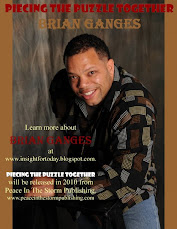
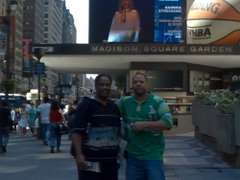



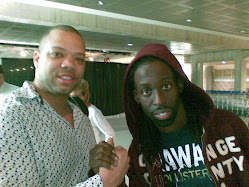


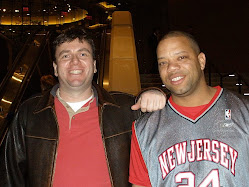




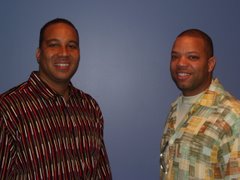


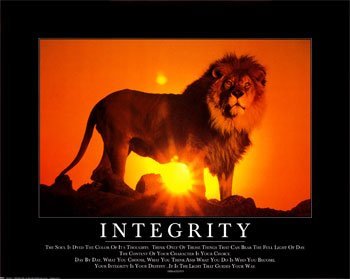
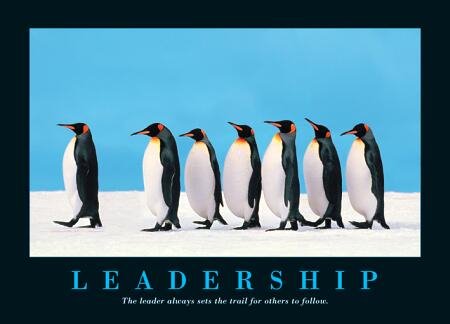
No comments:
Post a Comment